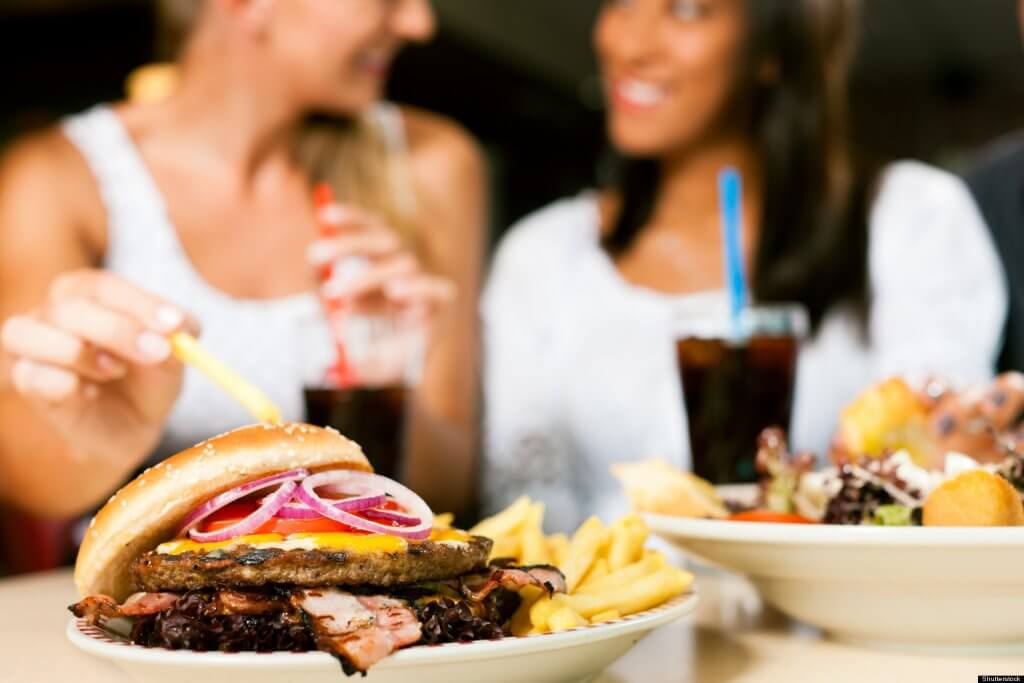Mother Nature has equipped our bodies with all necessary tools to survive. When our ancestors felt hungry, they took spears and went hunting mammoths, or gathered seasonal fruits and nuts. The technological revolution, mass production, and the invention of freezers made food available 24/7, and now you don’t have to cover several miles or wait hours or days for a deer or rabbit to get into your trap. The abundance of food has battled hunger in many parts of the world but instead brought us another problem – compulsive eating. A lot of people can no longer tell the difference between the real necessity to charge the body with energy and a wish to grab something just for the sake of eating. And this causes a worldwide epidemic of obesity, which many doctors and scientists call the plague of the 21st century.
Physical hunge
When you feel real hunger, your brain activates nerve centers within the hypothalamus that send you a signal it’s time to get fuel. These centers, the lateral and ventromedial hypothalamus, are also responsible for telling when you’re full, and no more food is needed. The scheme is very simple, yet tested by thousands of years of evolution – you feel hungry, you eat, you feel full, you stop eating. By going up, your blood sugar stimulates the ventromedial hypothalamus and lets you know the meal is over.
Your brain cooperates with your stomach, enabling you to feel fullness and avoid overeating. The stomach walls can store and digest a certain amount of food, and when the limit is reached, your brain receives the appropriate signal.

Emotional Hunger
However, when you repeatedly stuff yourself with extra food, regardless of fullness signals, the stomach walls stretch to hold an extra meal, the brain loses the natural rhythms and doesn’t send the necessary signal in time. You keep on eating more, the stomach walls stretch more, and your brain eventually sends “I’m full” signals more and more slowly. As a result, one of your most important weight maintenance tools fails, and you consume more food than needed to keep you functional and gain extra weight.
The question is why you keep on eating even knowing your hunger has been satisfied? For good or bad, food possesses a power to provide comfort and stress relief. When it starts serving as a reward instead of satisfying your physical hunger, you turn into an emotional eater. If nothing fills your emotional needs better than a chocolate bar or pint of ice cream, you’re in a risk group. If you head towards a fridge whenever you’re angry, relaxed, bored, overexcited, exhausted or lonely, you fall for an easy treat instead of addressing the real problem.
But instead of getting relief, you feel guilty for consuming too many unnecessary calories, blame yourself for the lack of willpower and stuff yourself with another portion or ‘calming’ food. As a result, you get stuck in a vicious cycle and may need professional help.
Emotional Hunger Triggers
Of course, each slice of pizza occasionally eaten in between meals doesn’t make you a compulsive eater, but if you give a positive answer to more than two below questions, things have taken a bad turn for you.
- Do you eat more when you’ve had a bad day?
- Do you keep on eating even if you’re no longer hungry?
- Do you eat to boost your mood?
- Does food serve as a reword?
- Does food make you feel happy, satisfied, safe or comfortable?
- Do you feel powerless over you food craving?
- Do you crave specific comfort foods?
- Do you feel regret, guilt, or shame after a meal?
Located in your head, not in the stomach, emotional hunger can’t be satisfied with food, but causes mindless eating, digestion problems, extra weight and numerous disorders accompanying it. In most cases, such unpleasant feelings like stress, boredom, exhaustion, emptiness, anger and disappointment cause emotional eating, but happiness and eventual will to reward yourself also make you overeat.
How to Develop Mindful Eating
Your main task is to recognize you’re a compulsive eater. Once you realize changes are needed, come up with a strategy to control emotions without resorting to food. Don’t fall pray to diets, promising a quick result – your ultimate goal is to build a logical nutritional scheme that you’ll be able to follow on a regular basis. It will take time, but the result won’t fade away once your ‘diet’ is over.
Think of other food-non-involving ways that fulfill your emotional hunger, like meeting with friends, doing sports, playing with a pet, dancing, taking an aroma bath or enjoying a good book or movie. Go shopping with a list, including only products that have a nutritional value for your body, and stick to it. Instead of impulsive stuffing, take time to taste your meal and enjoy every ingredient. Serve a small portion, take small bites, chewing thoroughly, eat slowly and don’t hurry up to get a second helping – your brain needs around ten minutes to process the information and send a fullness signal.
In case you’ve been unsuccessfully struggling with your eating habits for a long time, don’t be ashamed to seek professional help. Consulting a qualified nutritionist and psychologist may be a huge milestone in your journey to a new, healthy life.
Read also https://canadianhealthcaremallrx.com/8-myths-healthy-lifestyles.html



